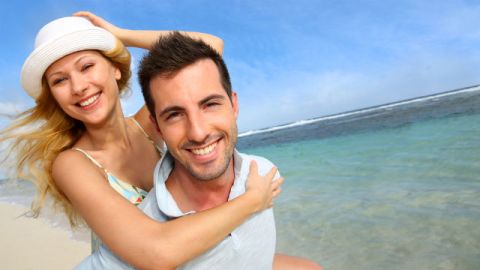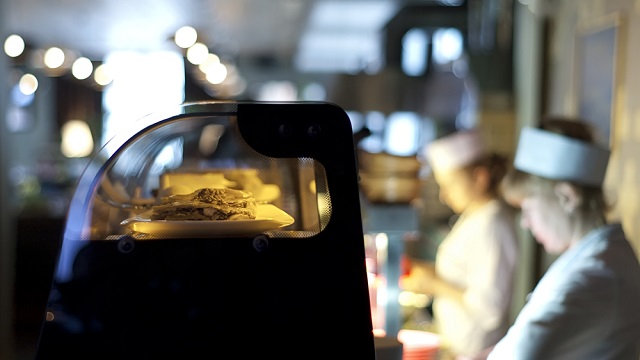Three Pro Tips for the Happiest Vacation Ever

A year ago, friends of ours surprised their young children with a trip to Disney World. As soon as the kids woke up, the parents sprung the news on them, threw their toothbrushes in their already-packed suitcases, and hustled them into a cab. An amazing idea, right? What could be better than a surprise trip to the land of Mickey, Goofy and Space Mountain? Um, almost anything. The boys did not take to the surprise; they cried all the way to the airport and were generally disgruntled for much of the day. Though the kids recovered and had a great time once ensconced in the Disney cosmos, the parents were befuddled by their initial reaction. Apparently, our friends’ sad experience wasn’t unique, though for some children, as you’d expect, the freak-out goes in the other direction.
Whatever your taste in theme parks, psychological research holds out valuable lessons for maximizing the bang from your next vacation, and they are just about the opposite of running away on a moment’s notice—with or without kids. The key to the happiest vacation ever is planning ahead.
Pro tip #1: Book your trip early
Stephanie Rosenblum explains why in her recent New York Times piece, “What a Great Trip! And I’m Not Even There Yet.” Planning a trip a few months ahead of time “allows us to build up positive expectations, to relish how enjoyable the experience might be.” It’s a simple idea, and researchers from the Netherlands confirm the intuition: in a 2010 study, the 974 vacationers “felt most happy before their trips.” Exploit your tendency to look forward by filling your expectation plate with tons of goodies awaiting you on the horizon.
This strategy has worked well for our family recently. The awful, terrible, no-good winter we endured in New York this year served as a perfect lead-up to an April trip to San Diego. “Just three more weeks till California,” I’d mumble through my scarf to my miserably cold daughters, tramping through yet another a March blizzard. And this spring, my wife is taking each girl on a separate mommy-daughter trip. The excitement builds with compound interest in a way no surprise trip could.
Pro tip #2: Immerse yourself in your destination from afar
You’ll be more likely to contemplate your upcoming trip and therefore extract enjoyment along the way if you’re actively engaged in researching and planning for your time out of town. So buy a good guide book and read it, carefully. Salivate over restaurant menus. Do some quality pre-exploration. Even if your vacation unexpectedly winds up to be a stinker, you’ll have given yourself a gift of a few weeks or months of sweet anticipation. Your trip to France might be marred by overlong lines at the Louvre and some bad escargot, but you’ll always have (your preconception of) Paris.
Elizabeth Dunn, a happiness researcher at the University of British Columbia, “spent plenty of time anticipating how wonderful” a pending trip to Hawaii would be. This “was a good thing because when she was at long last in Oahu she was attacked by a 10-foot tiger shark. The shark bit her leg to the bone but not into the bone, leaving her with scars though no physical impairments. It was, to state the obvious, her worst vacation ever. Yet Professor Dunn nonetheless pointed out that, ‘At least looking forward to it was still great.’ ”
Pro tip #3: Don’t skimp on vacations to pay for gadgets
Experiences bring a lot more happiness than things, and vacations can be among our richest experiences. Here is Michael Norton, a Harvard Business School professor and author of Happy Money:
When we ask people to list all of their expenses in a given month, and then categorize them, it is always striking how much of their budget goes toward buying what we call—using the scientific term—stuff. Gadgets, music, books, lattes, and so on. As it turns out, buying stuff is not bad for our happiness—buying coffees and cars and even houses don’t make us unhappy—but stuff also doesn’t make us any happier.
Buying experiences, in comparison, does seem to create more happiness for every dollar spent. Why? Consider the difference between buying a TV and buying a vacation. TV is great, sure, but the experience of watching TV pales in comparison to the experience of going to a special meal once a week with a partner or friend. A $4,000 high-end TV may seem like a great purchase, but taking that chunk of cash and devoting it to buying experiences (say, 40 wonderful meals that cost $100 each) creates much more happiness.
This research is another important corrective to claims that today’s poor are, relatively speaking, living large. With the prices of cell phones, televisions and computers plummeting in recent years, people earning minimum wage can now often afford smartphones and flat-screen TVs. But at the same time, health care, child care and college tuition have grown steadily more expensive, and travel is pricier than ever. Airfares are soaring; gas prices hover around $4 a gallon, and tourism is simply out of reach for many people. So the happy anticipation of far-off trips is one benefit of middle-class living that people of more modest means are unlikely to experience.
Image credit: Shutterstock.com





